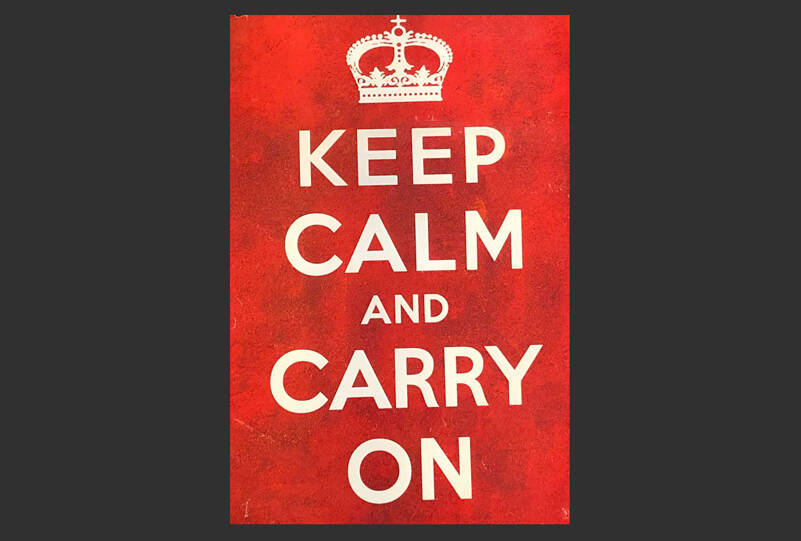By Morf Morford, Tacoma Daily Index
Most of us tend to encounter life’s challenges and benchmark experiences with the assumption that we are, in some sense at least, the first to face them.
From relationships to food, we tend to look at those around us, and the cultural messages across our favorite media for cues on what to do, with whom and when. And what it means.
Movies, pop songs and online videos clutter our mental landscape with all kinds of tips, hacks and examples of human frailty/stupidity and ingenuity around the world.
It might do us all a lot of good to look beyond the screen or hushed conspiracy about elites or secret societies (and their hidden agendas) and consider how ancient cultures (that often lasted for many centuries longer than we have) made sense of time, the various transitions and decisions of life and the unexpected vagaries of material existence in every area from public behavior to choosing a career to finding one’s passions in life.
Phrases, proverbs and old sayings capture the essence of these times of transition and challenge. These are phrases, statements or bits of philosophies that have literally stood the test of time. You could consider these as distilled summaries of human character, personal and social.
Some are contradictory. Some are true at some stages of life, while they are irrelevant or ridiculous at others. Some, for many of us, only make sense after we have lived through the experience.
As one saying puts it, we make our choices and then our choices make us.
Every decision, from the shoes we put on to the music we listen to, every other decision forecloses, or at minimum, delays other possibilities.
Unlike most online videos, these short phrases hold meaning that stretches across circumstances, cultures and centuries.
You may have noticed that people who talk for a living – like preachers, lawyers and politicians – use a lot of words often with little meaning or message. Whether these people get paid by the word or by the hour, all too often they seem to think their job is to fill time – and, if possible, muddy the issue so it takes even more time to sort out. Hour after hour, presentation after presentation, these people drone on with convoluted arguments that seem designed to confuse us all.
On the other hand, consider these distilled summaries of the life and challenges before us.
The hollow drum makes the most noise
From politicians to mansplainers to social media “influencers”, all too often we see that those with the least knowledge or experience tend to be the most outspoken – if not intrusive – about their opinions.
I know that it is hard to believe – especially in an election season, but volume has little correlation to knowledge, integrity, wisdom or experience. Or suitability for office.
What forgets is the ax, but the tree that has been axed will never forget
A decision or action may have little impact on us, but have a very powerful effect on someone else.
Our intent may not have a direct relationship to how it received by others.
What to us might be a passing act or word might be an enduring wound to someone else.
The path is made by walking
We use terms like “career track” or “life journey”, but to a large degree, the way we make is our own and, as much as we might be led or taken, our journey is ours alone.
It has been said that a long journey begins with a single step. Every journey and path is made by moving and making those single steps. Every friendship and career is composed of innumerable “single” steps.
A bad worker blames his tools
And a bad manager blames his workers. And a bad leader blames anyone, or anything.
A skilled craftsman and a good leader take responsibility and don’t blame anyone.
None are so deaf as those who would not hear
The ears (and eyes) may work just fine, but we all know people who refuse to learn, no matter how loud or insistent the message might be.
Tell me who your friends are, and I can tell you who you are
There’s an old saying that we are an average of the five people we spend the most time with. That may or may not be true, but what is true is that the people closest to us define and frame what is expected of us and, to a large degree, what we wear, eat, read or listen to. Or even what we are most likely to care about.
For better or worse, people who spend a lot of time together tend to look alike, work in similar fields and have similar beliefs.
Hasten slowly
If you’ve ever seen a master craftsman at work, you’ll notice that they tend to move steadily rather than rushed. They get things done, usually with a finishing touch that tops off a job well done. They are not frantic and they don’t forget things. They tend to work quickly and with a level of finesse that only comes with practice.
The squeaky wheel gets the grease
For better or worse, the machine, or animal or child or worker who makes the most noise gets the most attention. That does not mean that they truly need it or deserve it. Some parts of a machine break quietly – and permanently. Some people work, or even suffer, in silence.
The cheapest is always the most expensive
A corollary to this principle is that it is consistently more expensive to be poor.
Consider the difference between the shopping experience at Costco as compared to dollar or discount stores.
Discount stores are ideal for what they do – they offer cheap/affordable answers to immediate problems. Don’t expect to find tools to pass on to the grandchildren there.
At Coscto, be prepared to see (and presumably, buy) a week or months supply of whatever it is.
On a per serving basis, Costco is virtually always far cheaper than any “discount” stores.
But the reigning assumption is that you can afford, and have room to store, far more than you will use today. Or this week.
Truth wealth is about more than assets or even net worth – it’s about choices.
The poor have the fewest choices of all.
When the rich make war, it’s the poor that die
This statement presumes that two entirely different, non-intersecting groups participate in war – those who make decisions and set policies and those who are deployed, make sacrifices and often risk their lives for a cause.
War is, in some ways, the ultimate human experience, an activity that no civilization seems able to leave behind. But the questions that should be asked before, or even after, any given conflict are very simple; who profits? And who pays?
The race is not to the swift, nor the battle to the strong, neither bread to the wise, nor riches to men of understanding, nor favour to men of skill; but time and chance happen to them all -Ecclesiastes 9:11
If you are looking for certainty and affirmation of what you already believe, be careful when you read the Bible. You are just as likely to find verses that mourn that the wicked often prosper (Psalm 73:3-9) or that yes, time and chance happen to us all…





